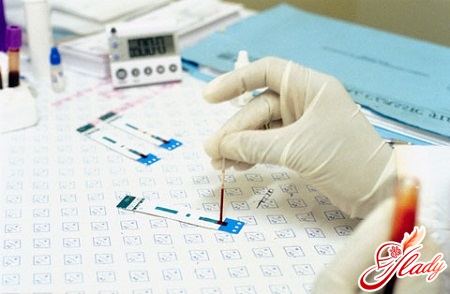 That the purpose of any woman is to give birthchild, is determined by nature itself. However, unfortunately, life sometimes makes its own adjustments, as a result of which a woman faces a variety of problems related to both conception and the successful course of pregnancy. Often a woman is unable to independently, without medical intervention and help from doctors, not only get pregnant, but also bear and give birth to her child. Doctors - gynecologists, as sad as it may be, often encounter such a phenomenon as miscarriages. Miscarriage is a huge tragedy for a woman and her entire family, especially if the pregnancy was long-awaited. Would-be parents most often fall into despair, mistakenly believing that remaining childless is their cross. For them, the most pressing question is - how to get pregnant after a miscarriage? However, this view of the problem of miscarriage is fundamentally wrong. A miscarriage is certainly a great misfortune, but you should not think that having a child is impossible for you, since you have had one or two spontaneous abortions. Although, of course, a miscarriage is an extremely alarming signal that there are some problems in the body of the parents - most often the mother. A miscarriage is a reason for immediate medical attention. In order to avoid a repeat of the tragedy in the future, it is very important to establish the factor that provoked the spontaneous abortion. For this, a consultation with one gynecologist is often not enough - in search of the causes of miscarriage, you may need a consultation with such specialists as an endocrinologist, geneticist, and others. This article briefly discusses the question of whether it is possible to get pregnant after a miscarriage. In order to understand the reasons that cause a miscarriage and prevent a woman from getting pregnant again, you need to understand what a spontaneous abortion is.
That the purpose of any woman is to give birthchild, is determined by nature itself. However, unfortunately, life sometimes makes its own adjustments, as a result of which a woman faces a variety of problems related to both conception and the successful course of pregnancy. Often a woman is unable to independently, without medical intervention and help from doctors, not only get pregnant, but also bear and give birth to her child. Doctors - gynecologists, as sad as it may be, often encounter such a phenomenon as miscarriages. Miscarriage is a huge tragedy for a woman and her entire family, especially if the pregnancy was long-awaited. Would-be parents most often fall into despair, mistakenly believing that remaining childless is their cross. For them, the most pressing question is - how to get pregnant after a miscarriage? However, this view of the problem of miscarriage is fundamentally wrong. A miscarriage is certainly a great misfortune, but you should not think that having a child is impossible for you, since you have had one or two spontaneous abortions. Although, of course, a miscarriage is an extremely alarming signal that there are some problems in the body of the parents - most often the mother. A miscarriage is a reason for immediate medical attention. In order to avoid a repeat of the tragedy in the future, it is very important to establish the factor that provoked the spontaneous abortion. For this, a consultation with one gynecologist is often not enough - in search of the causes of miscarriage, you may need a consultation with such specialists as an endocrinologist, geneticist, and others. This article briefly discusses the question of whether it is possible to get pregnant after a miscarriage. In order to understand the reasons that cause a miscarriage and prevent a woman from getting pregnant again, you need to understand what a spontaneous abortion is.
What is a miscarriage?
The word "miscarriage" is on everyone's lips.women, especially pregnant women. After all, any woman expecting a child becomes especially sensitive and susceptible to any negative information. This is explained very simply - a pregnant woman is very worried about her future baby. And, in addition, such a state of anxiety is largely facilitated by the changed hormonal background of a pregnant woman. Miscarriage is a spontaneous termination of pregnancy at certain stages - up to 28 weeks. Miscarriage is a fairly common phenomenon - according to statistics, at least three out of 10 women have experienced a miscarriage at least once in their life. And it should be noted that such statistics are true only for those cases of spontaneous termination of pregnancy that were recorded in medical institutions. In fact, there are many more cases of spontaneous termination of pregnancy than medical workers know about. Moreover, even women themselves do not always realize that they were pregnant and this pregnancy was spontaneously terminated for some reason. In fact, if a woman has regular sexual intercourse and does not take any measures to prevent pregnancy, fertilization of the egg does occur in about 80% of cases. However, the fertilized egg reaches the uterine cavity in no more than 30% of cases. And even fewer fertilized eggs manage to implant in the uterine mucosa. And only a few of them manage to continue their further development without dying in the first few days after implantation in the uterine cavity. And only after a week or a week and a half, the woman begins to show the first signs of pregnancy. But even in this case, alas, the pregnancy remains at risk of spontaneous termination. Gynecologists say that in about 25% of cases, diagnosed pregnancies are terminated for a variety of reasons. After about the eighth week of pregnancy, the risk of spontaneous termination decreases by 50%. Then this probability decreases in direct proportion to how the pregnancy period increases. All miscarriages are divided into two main subgroups:
- Early miscarriages.
Early miscarriages include those casesspontaneous abortions that occur early in pregnancy - up to about 16 weeks. As a rule, the cause of such miscarriages can be determined extremely rarely - most often the cause remains not fully understood or is not clear at all.
- Late miscarriages.
Late miscarriages are those casesspontaneous abortion that occurs after the 16th week of pregnancy. The cause of such a miscarriage is much easier to establish than the termination of pregnancy in the early stages. Most often, late miscarriages occur if the pregnant woman has suffered an injury or the fetus has some genetic disorders. In medicine, there is such a concept as habitual miscarriages. Every woman has heard of this definition at least once, but few know exactly what it means. Many people mistakenly believe that any miscarriage that has occurred more than once is called habitual. However, this is not entirely true - in fact, gynecologists call the second and all subsequent miscarriages habitual miscarriages, provided that they occurred one after another, without alternating successful pregnancies and the birth of a child.
The causes of miscarriage - who is to blame?
Despite the fact that all women know about it,that a certain risk of spontaneous abortion exists for every pregnant woman without exception, when faced with this misfortune personally, the question is asked again and again - who is to blame for what happened? In fact, most often, absolutely no one is to blame for spontaneous abortion. As is known, when an egg is fertilized, the genetic information is transferred to the child in equal shares - half from the father, and the other half from the mother. At the very moment when the sperm penetrates the egg, an absolutely unique cell is formed, which has its own set of chromosomes. The formation of these new cells is very complex and in its process a variety of genetic failures can occur, for example, the loss of some parts of the genes. As a result, the fertilized egg loses its viability and ability to fertilize. The fact at what stage this pregnancy will be terminated depends on which genes are lost. If the genes that are affected are those that are needed by the fetus at an early stage of its development, the pregnancy is terminated at the very beginning. If these genes are needed later, the pregnancy may develop absolutely safely for some time before it is terminated. As a rule, genetic defects are the main culprits in most cases of spontaneous abortion. It is almost impossible to prevent such abortions - such random genetic failures are simply impossible to predict. In this case, the parents can only resign themselves and try to get pregnant again - as a rule, subsequent pregnancies have a favorable outcome. However, there are also other reasons for spontaneous abortion, which modern medicine can completely prevent. The most common causes of miscarriages are described below:
- Hormonal disorders.
As you know, in order for pregnancy to occurdeveloped properly, the woman's hormonal background should change, thereby creating favorable conditions for the fetus. However, if the hormonal background for some reason has not changed, or has changed in an inappropriate way, the normal course of pregnancy and the correct development of the fetus are at risk. If the existing problem is detected by doctors at the very beginning, the situation can be taken under control and quickly normalized. But if the problem is not noticed or, worse, simply ignored - both by doctors and the woman herself, the probability of spontaneous termination of pregnancy is very high.
- Development of a woman with ischemic-cervical insufficiency.
This type of violation is characterized bypremature dilation of the cervix. The weakened cervix gradually opens and is no longer able to hold the growing fetus in the uterine cavity. As a result, the pregnancy is spontaneously terminated. However, if the doctor notices this problem in time, he will take the necessary measures to help maintain the pregnancy. As a rule, the doctor places a special cervical ring or stitches on the cervix, which prevent the cervix from opening. These devices are removed the day before the expected date of delivery.
- Infection of a woman with various infectious diseases.
Almost any infection in the early stagespregnancy can lead to its spontaneous termination. For example, even a common cold can provoke a miscarriage. That is why a pregnant woman or one who is just planning to conceive a child should be especially careful about her health - strengthen the immune system, avoid crowded places.
- Possible malformations of the uterus or ovarian tumor.
In some cases, for example, with a small orbicornuate uterus, a successful pregnancy is possible only with special supportive therapy and strict medical supervision. The same applies not only to the uterus, but also to possible existing ovarian tumors. By the way, if a miscarriage occurred for this reason, the woman should then, when planning her next pregnancy, regularly visit a doctor - based on the results of the treatment, the doctor will tell the woman how many months she can get pregnant.
- Functional diseases of vital body systems.
Spontaneous termination of pregnancyIt is also possible if the expectant mother suffers from any chronic diseases, especially cardiovascular diseases. In such a case, the woman should also be under the supervision of doctors.
- The effect of toxic substances.
In the event that the pregnant woman's bodywomen, and therefore, accordingly, the body of the fetus, are exposed to toxic substances such as nicotine, alcohol, drugs, varnishes, paints, acetone, which may disrupt the development of the fetus and cause spontaneous abortion.
- Nervous shocks
Severe stress can also be deadly to the successful course of pregnancy.
- The case of an abortion in the past.
Information about the previouspregnancy abortion significantly increases the risk of miscarriage, is known to all. Abortion is especially dangerous if the woman's first pregnancy was interrupted. For successful conception of a child and a successful outcome of pregnancy after a previous miscarriage, parents realized the fact that a miscarriage is not a sign that they are not able to give birth to a child. Single miscarriages only indicate that some kind of failure has occurred in the parents' body and it is necessary to consult a doctor in order to identify the problem and eliminate it. As a rule, gynecologists in each specific case certainly know whether it is possible to get pregnant after a miscarriage.
How to become pregnant after a miscarriage?
Of course, spontaneous interruptionpregnancy is a huge tragedy for any family. Each family reacts to this grief in its own way - someone tries to get pregnant as quickly as possible, while someone, on the contrary, does not risk getting pregnant again for a very long time, panicking about a repeated spontaneous abortion. It is impossible to say unequivocally who is right and who is wrong. In the event that no diseases are detected in the parents that pose a threat to a favorable outcome of pregnancy, the period for a second pregnancy should be determined only by their moral readiness. If a woman gets pregnant immediately after a miscarriage, she should be under the close supervision of a gynecologist from the very beginning of pregnancy until the very birth. However, gynecologists still recommend following some rules. The main ones are listed below:
- If you are able to survive morally sometime, you should not get pregnant before six months after the miscarriage. Unfortunately, pregnancy, which occurred at an earlier time, has a higher probability of spontaneous termination. When you can get pregnant after a miscarriage - you also tell a doctor - a gynecologist.
- Be sure to complete the most complete examination with the necessary specialists.
- In the event that you have health problems, before pregnancy, eliminate them so that the miscarriage does not happen again.
- Be sure to follow all the recommendations of yourdoctor - gynecologist, who will help you to choose the optimal period for conception. In addition, remember that you can get pregnant after taking contraceptives only if they are matched correctly.
Thus, from all of the aboveReaders have already understood that the answer to the question of whether it is possible to get pregnant after a miscarriage is positive. But in order for your baby to be born, you must make every effort. Perhaps you feel that the mental state you are experiencing after a miscarriage cannot be restored in any way. You notice depressive thoughts about what happened, try not to close yourself off inside. Perhaps, just a conversation with a person who understands you and supports you, not only in words but also in deeds, will help you, if this does not help you, contact a professional, it can be either a psychologist or a psychotherapist who have encountered and know how to properly overcome such problems. The experiences present now will certainly affect the baby in a subsequent pregnancy, the feeling of fear can prevent you from enjoying the happy months. Try to overcome it. It may turn out that in order for you to give birth to a healthy baby, you will need to change your entire way of life. You may need to change or stop your job if it is intense or hard enough. Your doctor may prescribe you multivitamins. Often in such cases, you need to do special exercises. If your weight is above the norm, work on normalizing it. And, of course, forget about bad habits. You can get more detailed information. And remember the main thing - if you really want something, it will definitely come true! We recommend reading:









